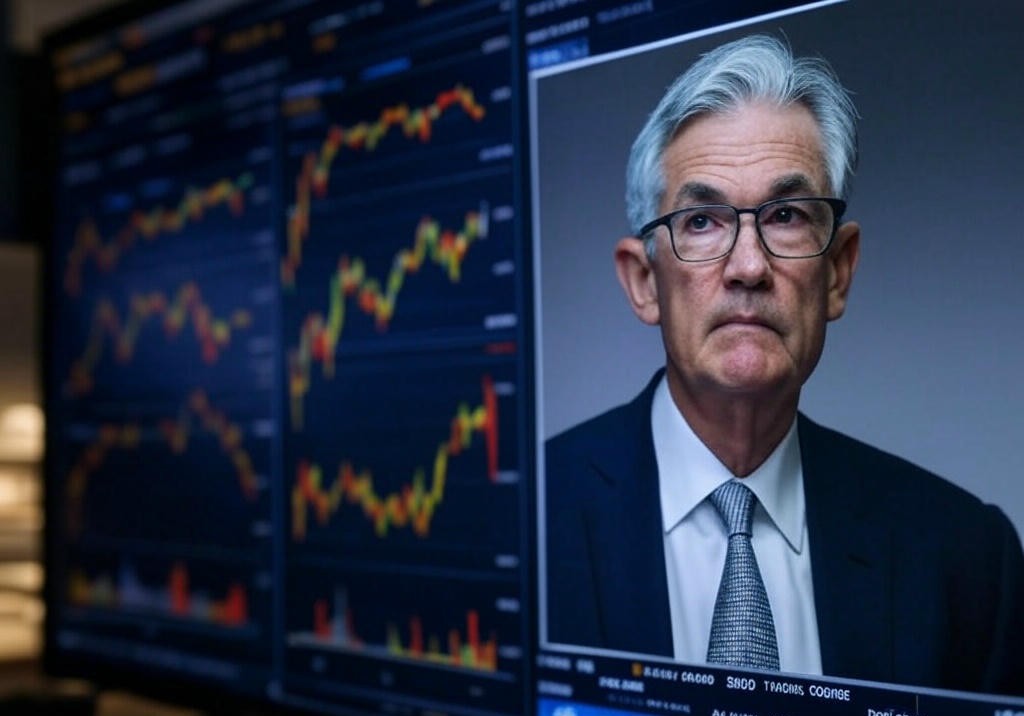
Global stock markets have been on a rollercoaster ride recently reacting to major economic and political developments in the United States. The introduction of new tariffs by former President Donald Trump and growing concerns about a potential US China trade war have shaken investor confidence. While markets worldwide have shown some signs of recovery US stock indices like the Dow Jones, S&P 500 and Nasdaq have experienced significant declines. Adding to the uncertainty is the fear that Federal Reserve Chair Jerome Powell might be removed which could further disrupt economic stability.
The Trigger: Trump’s Tariffs
The recent market turmoil began with Trump’s announcement of new tariffs which are taxes imposed on imported goods. These tariffs aim to protect American industries by making foreign products more expensive encouraging consumers to buy locally made goods. Tariffs can also increase costs for businesses and consumers disrupt global supply chains and provoke retaliation from other countries.
The announcement sent shockwaves through global markets as investors worried about the ripple effects. Countries like China a major trading partner of the US could respond with their own tariffs escalating tensions into a full blown trade war. This fear led to sharp declines in stock markets worldwide as companies that rely on international trade saw their share prices drop.
US Stock Market Declines
The US stock market felt the brunt of these concerns. On the day of the tariff announcement major US indices recorded significant losses. The Dow Jones Industrial Average fell by 2.60% the S&P 500 dropped by 2.70% and the Nasdaq Composite which is heavily weighted toward technology stocks declined by 3.03%. These drops reflect investor fears about the economic fallout from tariffs and trade disputes.
Technology companies in particular were hit hard. Many tech giants such as Apple and Tesla rely on global supply chains and sell products in international markets. Higher tariffs could increase their production costs and reduce demand for their products in countries like China. As a result tech heavy indices like the Nasdaq saw steeper declines than broader market indices.
Fears of Jerome Powell’s Removal
Another factor contributing to market unease is the speculation that Trump might attempt to remove Federal Reserve Chair Jerome Powell. The Federal Reserve often called the Fed is the US central bank responsible for setting interest rates and managing monetary policy. Powell’s leadership has been seen as a stabilizing force guiding the economy through challenges like inflation and the COVID-19 pandemic.
If Powell were to be replaced it could create uncertainty about the Fed’s future policies. Investors worry that a new chair might adopt a less predictable approach potentially leading to higher interest rates or other measures that could slow economic growth. This uncertainty has added to the negative sentiment in the stock market as investors crave stability in times of economic upheaval.
Global Markets: A Partial Recovery
While US markets have struggled global stock markets have shown signs of recovery after the initial shock of the tariff announcement. European and Asian markets which also experienced declines have started to stabilize as investors assess the situation. Some analysts believe that the global economy is resilient enough to withstand the impact of US tariffs especially if other countries avoid escalating the trade conflict.
The recovery is fragile. Any further escalation in the US China trade war or unexpected policy changes in the US could trigger renewed volatility. Investors around the world are closely watching developments in Washington and Beijing for clues about what might happen next.
What This Means for Investors
For everyday investors the current market environment can feel overwhelming. Stock market declines can be unsettling especially for those with retirement savings or other investments tied to the market. However it’s important to stay calm and avoid making impulsive decisions.
- Diversify Your Portfolio: Spread your investments across different asset classes such as stocks bonds and real estate to reduce risk.
- Stay Informed: Keep up with news about trade policies and economic developments but don’t let headlines dictate your decisions.
- Think Long-Term: Stock market dips are often temporary. Historically markets have recovered from downturns and continued to grow over time.
- Consult a Financial Advisor: If you are unsure about your investment strategy seek advice from a professional who can help you make informed choices.
Looking Ahead
The stock market’s reaction to Trump’s tariffs and fears of a trade war highlights the interconnected nature of the global economy. While US indices have taken a hit global markets are showing some resilience. The potential removal of Jerome Powell and the risk of escalating trade tensions remain significant concerns.
Investors should brace for continued volatility in the coming weeks as these issues unfold. By staying informed and maintaining a balanced investment approach individuals can navigate this challenging period with greater confidence. The key is to focus on longterm goals and avoid reacting to short term market swings.
